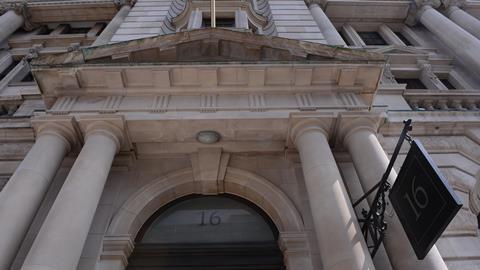Mining giant Eurasian Natural Resources Corporation (ENRC) today won part of its High Court claim against international firm Dechert and its former head of white-collar crime Neil Gerrard in relation to the Serious Fraud Office’s ongoing investigation into allegations of bribery and corruption.
Mr Justice Waksman said Gerrard ‘was in breach of his contractual, tortious and fiduciary duties’ to the former FTSE 100 company and that he was ‘at least in reckless breach of duty in respect of 22 disputed contacts’ with SFO staff.
ENRC’s claim against the SFO for misfeasance in public office and inducing breach of contract by allegedly encouraging Gerrard to leak confidential information was allowed in part. Waksman said that ‘the inducement claim against the SFO has been made out subject to causation in respect of 15 disputed contacts, but the misfeasance claim is not made out’.
A further hearing may take place in the near future to deal with questions of causation and loss, the judge added.
In a written summary of his findings, Waksman said he found that Gerrard ‘was indeed the instigator of all three leaks to the press’ which led to three media reports about his investigation into allegations against ENRC.
Gerrard also ‘engaged with [former SFO director Richard] Alderman without authority’ prior to the publication of a ‘highly damaging’ article in The Times, the judge said, before Alderman ‘tipped Mr Gerrard off’ about a forthcoming letter from the SFO to ENRC.
The now-retired partner was also found to have anonymously sent ‘confidential and in some cases privileged information’ to the SFO in a brown envelope in June 2013, shortly after Dechert’s retainer was terminated, as well as being negligent in relation to his ‘failure to record in writing his own advice’, his ‘wrong advice about ENRC’s potential criminal liability’ and the ‘unnecessary expansion of the investigation’.
Waksman also noted that Gerrard and Dechert admit that the lawyer’s failure to disclose that ENRC’s then-global head of compliance Cary Depel was about to be interviewed by the SFO amounts to ‘a reckless breach of duty’.
Waksman found that the SFO, acting by Alderman and/or the former head of its proceeds of crime unit Mark Thompson and/or former SFO investigator Dick Gould, was ‘in serious breach of its own duties’ in relation to 15 out of the 30 disputed contacts between the watchdog and Gerrard.
The breaches ‘included engaging with and taking information from Mr Gerrard which was plainly unauthorised and against his client’s interests’, Waksman said, finding that ‘the tort of inducement to breach of contract’ by Gerrard has been established, subject to proof of causation and loss.
Waksman also said that ‘all questions of causation and loss are to be dealt with in a subsequent judgment and/or trial, if necessary’, subject to two exceptions.
He found that ‘it is not the case’ that the SFO would not have sent a letter to ENRC in August 2011 but for its ‘wrongful conduct’ in relation to communications between Gerrard and Alderman shortly before the letter was sent, nor that that ENRC ‘would have not engaged with the SFO as it did’.
Responding to the judgment on behalf of Dechert, a spokesperson said: 'We recognise fully the seriousness of the judge’s findings in relation to Mr Gerrard’s conduct. We are considering the judgment to see what we should learn from it. Trust among partners is integral to any partnership, and throughout this litigation, Dechert has always acted in good faith in reliance on the assurances given to us by our former partner. The court has now found Mr Gerrard to have committed conduct, which is completely at odds, not only with our values, ethos, and culture as a firm, but also with the high ethical and professional standards adhered to on a daily basis by our lawyers the world over.'
A spokesperson for Gerrard said: ‘I and my family are devastated by today’s judgment. After over 30 untainted years as a solicitor, I remain sure of the appropriateness of my actions, of my advice in relation to my former client and of my personal and professional integrity. I gave evidence to the best of my ability and believed I was telling the truth at all times. I would like to thank Dechert for their support. This is my only comment at this time.’
Michael Roberts, a partner at Hogan Lovells who represented ENRC, said: ‘Sadly, it is now clear that ENRC was betrayed and exploited as Dechert sought to maximise its own billings, even to the extent of leaking privileged material in order to prompt action by the SFO. Far from the integrity and fairness to be expected of a government law enforcement agency, the SFO was itself complicit in Dechert’s dishonest conduct.’
A spokesperson for ENRC said the company is ‘profoundly concerned by the very serious implications for other Dechert clients and other subjects of SFO investigations’.
They added: ‘We repeatedly urged both Dechert and the SFO to examine the evidence, and to draw the obvious conclusions. At every turn, we were rebuffed, and both Dechert's and the SFO's leadership chose, at great expense, to defend the indefensible.’



























